South West Wiltshire: What's the burning issue?
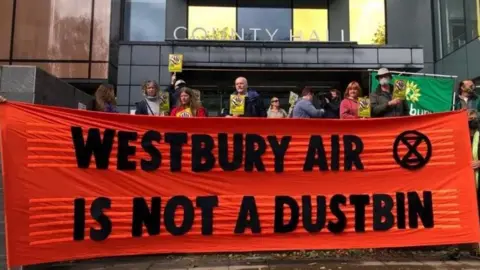 BBC
BBCAs people prepare to make their mark on the ballot paper next week, the BBC has been looking at some of the issues that might be playing on people’s minds.
One of the biggest issues in South West Wiltshire is the Westbury incinerator, which has been dividing opinions for years.
The constituency of South West Wiltshire is huge in area.
It has four towns, numerous villages and thousands of acres of countryside, including some of Salisbury Plain and the Cranborne Chase National Landscape.
With this comes the big question, as in other areas, of what should be done about its waste, and plans for Wiltshire's first waste incinerator are rarely out of the local headlines.
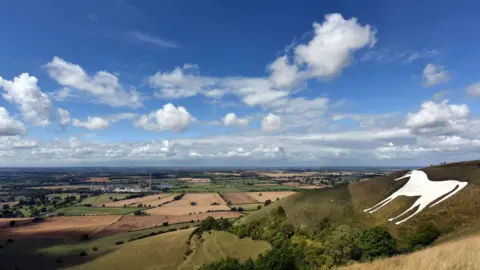
The Incinerator
An incinerator for Westbury has been a highly controversial plan for many years.
A waste company - Northacre Renewable Energy, made up of local business Hills Waste and Evero energy - wants to build a waste-to-energy incinerator in the town and there has been a long campaign against it over air quality, the environment, health and the lorries to feed it.
Technically it has planning permission, but the development stage is still very early, with not much happening on site yet.
It is on an industrial site with Hills Waste already bailing up rubbish behind it, but the area is very close to the town, including homes.
To get to this stage, it has been to a government inspector for approval, which the council said it would not appeal, but it mentioned at the time that it does not affect "any member of the local community from pursuing their own legal action in respect of this matter".
Northacre itself said it would be a "major investment in Wiltshire’s energy infrastructure" and would "provide employment both during construction and operation".
It has called it a "sustainable, long-term solution" for waste in the area, which is "currently destined for disposal in landfill or export to Europe."
It has said throughout the process that the electricity generated would be able to power thousands of homes.
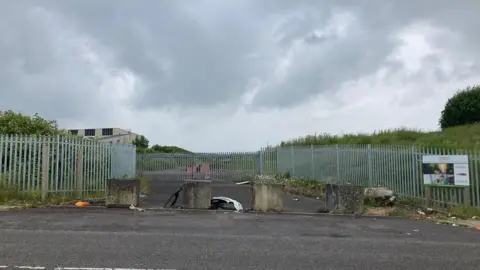
How do locals feel?
Local people have an ongoing campaign against it, with an active Facebook group they contribute to.
Mark Bailey is an independent councillor for Westbury Town Council, which has been fighting it, and called it an "unwanted monstrosity".
"The incinerator is right on the edge of the town, you can see it from the centre," he said.
Mr Bailey explained that one of the main issues people have with it is health, but also worries about increasing numbers of lorries.
"It's going to bring very few jobs - it will be mostly automated, so there will be very few benefits for the town at all," he added.
Matthew Dean is a local pub landlord and also an independent councillor.
He said: "People are absolutely horrified. We're worried about pollution.
"We desperately need a proper waste management strategy for this country.
"The burning of waste by incineration close to residential areas should be a no-no."
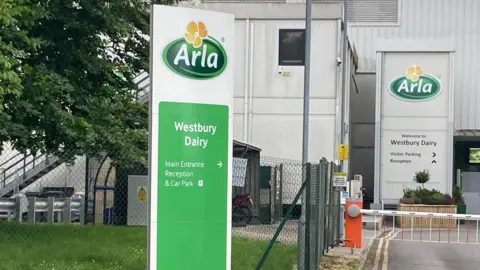
Analysis: Kate Lamble, BBC Radio 4, More or Less
The argument for waste incinerators comes down to landfills being bad for the environment.
Waste accounts for about 3% of the UK’s carbon emissions, largely because organic waste in a massive pile breaks down and produces a significant amount of methane, which is more than 25 times better than carbon dioxide at trapping heat in the atmosphere.
The theory is by burning things that could not be reused or recycled, you can avoid that and produce energy at the same time.
However, biodegradable waste isn’t the only thing we send to landfill - and incinerators also burn things like plastic, made from fossil fuels like oil.
That non-renewable part has significant emissions.
The balance of plastic to biodegradable waste varies from area to area, but nationwide it is about 50/50.
The industry hopes carbon capture will come along to help reduce these emissions.
Already almost 50% of waste from local authorities goes to incineration facilities.
The government wants to halve the waste going to landfill or incinerators by 2042, which would really reduce the need for any more.
However, in the short term, the recycling rate in England has remained static at about 44% for the last decade.
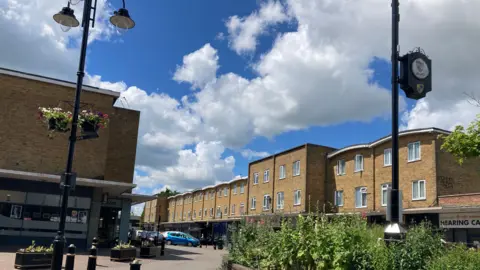
What do the 2024 candidates say?
The fact is, the incinerator is not popular. So the question is not if a politician would oppose it, but what would they do about it?
The Conservatives have put a line in their manifesto about incinerators - they have said the party wants to prevent new ones being built and revoke those where substantial construction has not taken place. Their candidate for South West Wiltshire, Andrew Murrison, said: "We don't need to stick [rubbish] up the stack, into the great landfill in the sky."
It is not clear in Labour's manifesto what the party's view is on incinerators, but the candidate for South West Wiltshire, Evelyn Akoto, has said that she would oppose it. "I'm surprised it's got this far. We don't have an adequate waste management system," she said.
The Liberal Democrats also do not mention incinerators directly, but local candidate Bret Palmer said some modern incinerators can be quite clean, however he added: "There's a big A-road, lots of pollution already, so any top-up will be bad for respiratory health. The vast majority of a bins contents can be recycled, there are options."
The Reform party's Garry Irvin said he would want to see it stopped. He said: "We might be accused of nimbyism - the incinerator has to be built somewhere but South West Wiltshire is pristine countryside".
The Green Party has told the BBC it wants to see waste incineration "phased out" and wants to invest in re-use, repair and recycling. Green candidate Fay Whitfield was not available for interview.
Independent candidate Thomas Culshaw said he is against the building of incinerators, adding: "I would do everything I could - it's an awful way for us to dispose of our waste."
Independent candidate James Ward explained he would want to fight it with local residents using the law. "You take the matter to court - it's time people were supported in using the law."
Follow BBC Wiltshire on Facebook, X and Instagram. Send your story ideas to us on email or via WhatsApp on 0800 313 4630.
